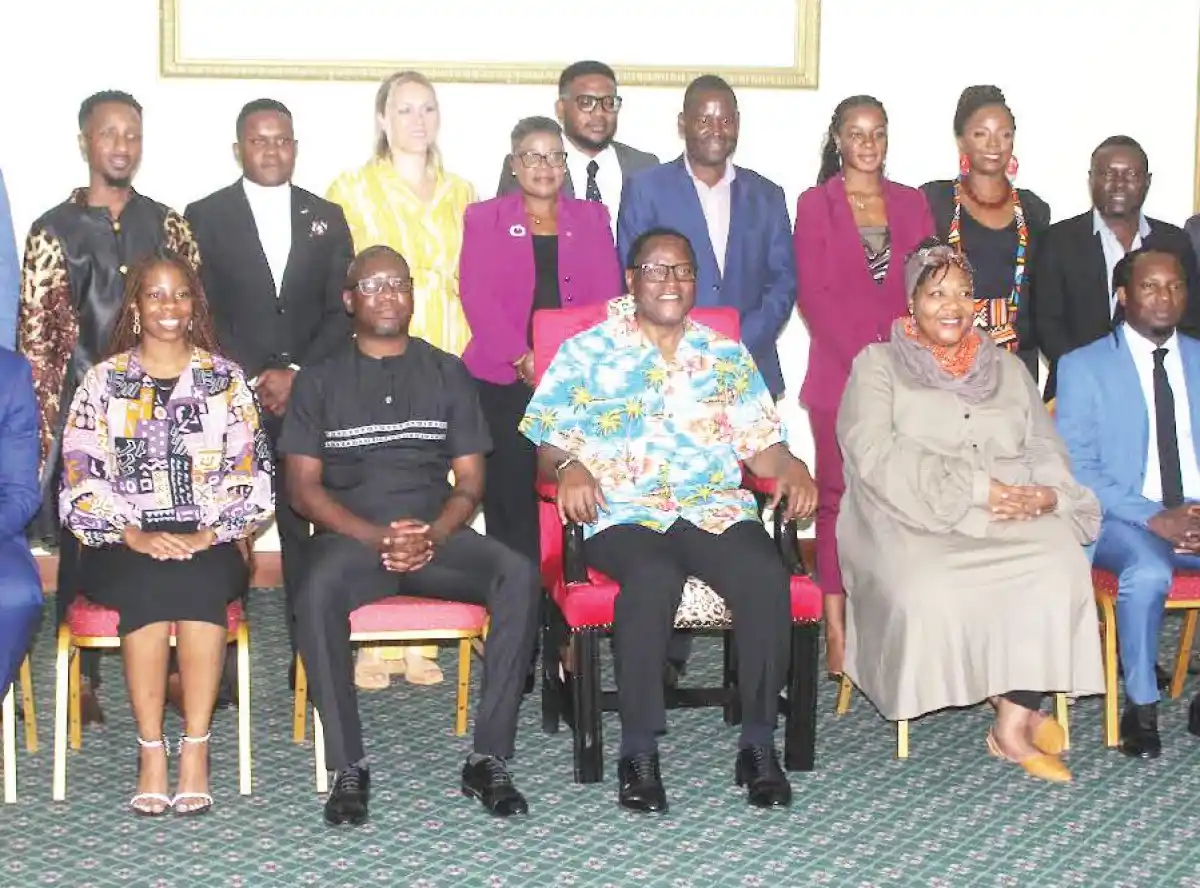
President Lazarus Chakwera has displayed that he values the creative sector by assenting to the National Arts and Heritage Council (Nahec) Bill.
The development comes barely three months after Parliament passed the long-awaited Nahec Bill.
Chakwera, who in September this year engaged creatives at Sanjika Palace in Blantyre soon after the bill was passed in Parliament, announced this during the launch of the $20.2 million (about K35.3 billion) Battery Energy Storage System (Bess) Project in Lilongwe.
“I am particularly excited to announce that I have just signed Nahec Act into law to enhance our creative industry as a major feature in our tourism master plan,” he said.
The Malawi leader said the Malawi 2063 vision looks at industrialisation and commercialisation of different sectors and that the creative sector has not been left out.
The move will now start the process of the creation of Nahec, which will, among other things, help sanitise the industry and see the government giving the sector subvention.
Players in the creative sector have welcomed the development, saying this is a giant step in growing the creative industry.
Renowned poet Q Malewezi, who is also President Chakwera’s special adviser on creative industries, said this is a game-changer for artists and everyone who values culture.
“This is reflecting the President’s commitment to uplifting the creative industries and protecting the traditions that define us,” Q said.
He said Nahec would provide a platform for increased funding and support for artists and creatives, improved preservation of “our cultural sites and greater opportunities to showcase Malawian creativity on the global stage”.
National Theatre Association of Malawi (Ntam) leader Maxwell Chiphinga, who also chairs the Nahec Taskforce, said yesterday he was excited with the development.
“This is what we have been waiting for; it is a beautiful melody to the ear of every creative in the country. The delay of this bill has negatively contributed to the slowness of our industry, in terms of progress and growth,” Chiphinga, popularly known as Max DC, said.
University of Malawi (Unima) Associate Professor Zindaba Chisiza and Professor Gowokani Chijere Chirwa recently shared findings on ‘Mapping Malawi’s Arts and Cultural Industries’, saying the industry had huge potential if it were supported by the government.
“At the moment, the sector is not being supported by the government but it contributes K28 billion to the country’s gross domestic product, which translates to 0.4 percent. This is when there is no support and, so, imagine if there was support, the sector could do more,” Chisiza said recently.








0 Comments